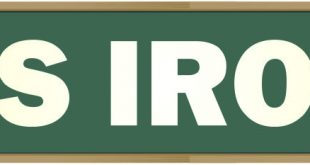The Daughter of a Nation-builder
Dina Wadia, the only child of Pakistan’s founding father Quaid-i-Azam Muhammad Ali Jinnah and Rattanbai Petit who was also known as Maryam Jinnah, breathed her last on 2 November. Neat and slim, with an imperious nose, the reclusive Dina Wadia stunned those who met her because of her striking resemblance to her great father. She also possessed his quiet, but stern, manner. Her own temperament and personality, she reckoned, came more from her father than her mother.
Dina Wadia was born on the night between August 14 and 15 in 1919 in London. Jinnah had raised Dina alone after separation from his wife Rattanbai and her subsequent demise. In 1947, when Pakistan came into being, Dina Wadia had opted for Indian citizenship. She was a close witness to the political and personal life of her father as well as his transformation from a champion of Hindu-Muslim unity to the torchbearer of Muslim nationalism in the Subcontinent. Although Quaid-i-Azam loved her deeply, their relationship had become strained after Dina fell in love with and subsequently married an Indian Parsi named Neville Wadia at the age of 19, against the wishes of her father who did not want her to marry a Parsi.
Like her mother Rattanbai Petit, Dina was not a stickler for religious norms – Ruttie was 18 when she embraced Islam and married a 42-year-old Jinnah. Dina was 17 when she told her father that she wanted to marry Neville Wadia, the scion of an equally illustrious Parsi family in the textile business. She even argued with her father that her mother was also a Parsi, Mr. Jinnah’s response was, “She became a Muslim”. Quaid-i-Azam told her that there were millions of Muslim boys in India, and she could marry anyone. Muhommed Ali Currim Chagla, who was Jinnah’s assistant at that time, quoted her reply as’. “Father, there were millions of Muslim girls in India. Why did you not marry one of them?” This adamancy led to a strained relationship between the father and the daughter. She married Neville Wadia in 1938 and moved to Bombay – Dina’s marriage to Neville could not last long as they separated for after merely five years. She moved to London and later to New York where she lived the rest of her life.
For Jinnah, the marriage was a major political embarrassment. He became permanently estranged from his daughter and her family. Though Jinnah never sent a legal notice disowning her, their correspondence after her marriage became formal. Jinnah addressed her formally as Mrs. Wadia. Before leaving for the soon-to-be-formed Pakistan, he, however, met his daughter for the last time along with her son Nusli and her daughter Diana.
Dina did not travel to Pakistan until September 1948. When Wadia wanted to visit Pakistan on hearing that her father was critically ill, he refused her a visa and she could go to Pakistan only after his funeral. She did not get any claim of inheritance of her father’s properties as Pakistani laws allows for a person to be disinherited for violating Islamic rules, in this case by a Muslim woman marrying a non-Muslim.
The last time she visited Pakistan was in 2004. She was accompanied by her son, Nusli Wadia, and grandchildren, Jahangir and Ness Wadia; and two great grandchildren Jah and Ella Wadia, during a landmark cricket series between Pakistan and India on the invitation of former president General (Retd.) Pervez Musharraf. After visiting the mausoleum of her father, she wrote in the visitors’ book: “This has been very sad and wonderful for me. May his [Jinnah’s] dream for Pakistan come true!”
Although she had moved to London, and later New York, she was in regular contact with her son Nusli Wadia, who is a prominent businessman and is often named in the list of India’s most successful people. She was also fighting a suit in court to claim legal possession of her father’s house in South Court on Malabar Hill, now usually referred to as Jinnah House. Valued at over $400 million, the stately bungalow has historical significance for the Subcontinent since Jinnah, Jawaharlal Nehru and Gandhi met there before the formation of Pakistan. In 2007, Dina Wadia filed a writ petition before the Mumbai High Court, claiming that Jinnah House could not be classified as an “evacuee property,” as her father had died without leaving behind a will and demanded that the house be handed over to her. After Jinnah’s death, the Pakistan government wanted the property handed over to it. The Indian government pointed out that in his will Jinnah left the property to his sister Fatima who had also passed away. Dina Wadia’s counsel’s contention is that since Jinnah was a Khoja Muslim, a community, which follows Hindu law and not Shariat, Dina, as his daughter and an Indian citizen, was the rightful heir to the property.
Soon after the death of Dina Wadia, condolences started pouring in from across the country. People from all walks of life, including politicians, civil society and social media users expressed their sadness on the demise of Wadia.
President Mamnoon Hussain and Prime Minister Shahid Khaqan Abbasi expressed deepest condolences, on behalf of the people of Pakistan, on the passing away of Dina Wadia.
“Mr Nusli Wadia, Mrs Dina Wadia’s son has been conveyed the sadness of the Pakistani nation, on the demise of their beloved mother, who was greatly respected and admired in Pakistan. May she Rest In Peace,” a Foreign Office statement read.
A Daughter’s Memory
Dina Wadia’s Note to Quaid-e-Azam
My father was not a demonstrative man. But he was an affectionate father. My last meeting with him took place in Bombay in 1946. He had come from New Delhi, in the midst of most heavy preoccupations with crucial negotiations. He phoned inviting me and my children to tea. He was very happy to see us — Dina was five and Nusli, two. We mostly talked about the children and politics. He told me that Pakistan was coming. Despite his pressing engagements in New Delhi he had found time to buy presents for us. As we said good-bye, he bent down to hug Nusli. The grey cap, which he wore so often that it now bears his name, caught Nusli’s fancy, and in a moment he had put it on his grandson’s head saying, “Keep it, my boy.” Nusli prizes the cap to this day. I remember the gesture because it was characteristic of his sensibility and consideration for me and my children.
Some of my father’s critics say that he was arrogant. This is incorrect. He was not the hail-fellow-well-met type; he was. like me, a very private person. On matters of principle, be always stood firm. He was never false to himself or to others in private or public life.
When others say things which are untrue about him I get angry, and angrier still when some writers who had no contact with him feel free to pretend an intimate knowledge and quote me as a source.
They say fantastic things, such as that he ate pork which Muslims never do. They cover with fiction their gaps in knowledge about the human side of my father.
The Muslims of the subcontinent produced many distinguished leaders but none of them was able to give them what he did – a state of their own.
The people of Pakistan owe him a unique debt… No Jinnah, no Pakistan. ‘ D.W.
 Jahangir's World Times First Comprehensive Magazine for students/teachers of competitive exams and general readers as well.
Jahangir's World Times First Comprehensive Magazine for students/teachers of competitive exams and general readers as well.



